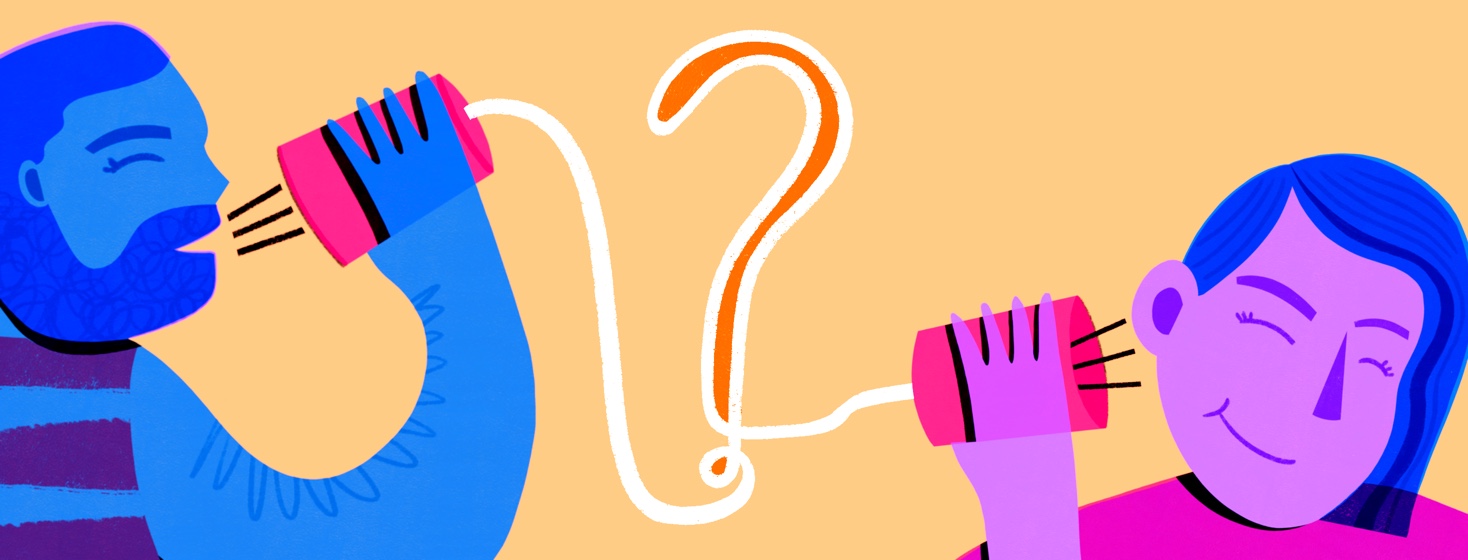Ask the Health Leader: It's Not Always Easy to Ask for Help
Whether it's the support of loved ones or encouragement from online support groups like this one, asking for help is difficult for many of us. We feel like we should be able to handle it all ourselves and don't want to impose. In reality, we don't do anything completely alone.
Here are some stories from our MacularDegeneration.net Health Leaders about times they have struggled to ask for help.
Andrea
"I do find it easy to ask for help with tasks that were once easy for me to do but are now hard to do alone. Recently, I was in a dark movie theater. My boyfriend had rented the entire theater for our family for Christmas. We hadn't been to a movie in so long because of COVID and I noticed that I couldn't get back from the bathroom by myself without the flashlight on my phone.
I came back visibly saddened from my trip to the restroom and my boyfriend asked what happened. Now that we have talked about it, he simply grabs my arm lovingly and guides me through places that are darker or harder to navigate. Asking for help isn't a sign of weakness, it's a sign of strength. It allows us to continue to live our lives and that is such an important thing!"
Linda
"It’s getting easier to explain why I can’t drive at night. It’s an educational process for others without vision challenges, and more needs to be understood. People are more than willing when they understand. There are times when I get frustrated about not being able to do what I used to do, but it’s often more related to age than to macular degeneration (AMD). I need to keep things in perspective and not blame everything on AMD."
Debbie
"I feel very fortunate with this. I have a very supportive husband and he understands and jumps in whenever I need assistance. I also am blessed with friends and the family members who get it as well. This makes it so much easier when it comes to night driving or other challenging situations – they have me covered."
Wendy
"No, I don't find it easy to ask for help. I really dislike asking for help. This is something I will need to work on. I know that most people are happy to help others, but still I don't want to take up their time. Often I think about moving to a house that is easier to manage, and then I realize I would be moving away from my friends, so this is a quandary."
Cora
"It took me quite a while to learn to ask for help. I was the one who could do anything. Alone. It’s easy to ask a quick 'Can you make out what this says?' on a label, but it’s not so easy to ask for a drive at night in unfamiliar territory. I was always willing to help when I could, so why would I think a friend might not be? But I’m learning."
Richard
"It’s not easy for me to ask for help, but I am getting better at it. My wife and close friends know of my condition and are always willing to help and assist me. Planning ahead is a big thing for me now. If I think my low vision will be an issue on a task, I will plan it so I have a friend or loved one with me. I used to travel solo in my vehicle to visit my grand kids 6 hours away, but now I need a copilot. This has impacted my personal freedom some, but I’m coping with it."
Sharon
"I require a driver for my retinal specialist appointments. Either my daughter or brother are happy to drive me the 200-mile round trip. I have to ask my husband to thread my sewing machine. Thankfully, he doesn’t mind. On rare occasions, I need assistance while shopping. I do find it harder to ask strangers for help. It is getting easier to say, 'I am vision impaired – can you help me?' I find people are willing to help."
Lean on others
No matter the level of your vision impairment, we all need help sometimes. For support relating to macular degeneration, head to our forums and consider asking a question or responding to someone else's.
Life is too short to do it all alone. Challenge yourself to speak up when you're having a tough time. You'll be glad you did.

Join the conversation